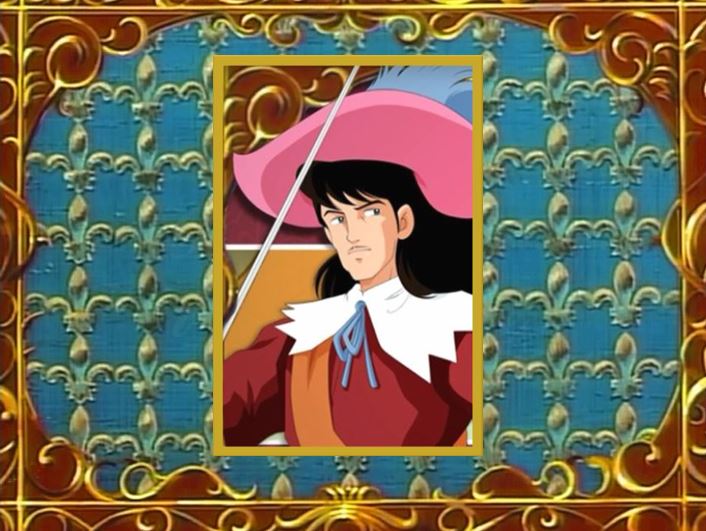Rhubarb pie -- and Mordaunt
4 April 2025 05:43 pmNB Mordaunt (the son of Milady by her second husband) in Twenty Years After is played by the Count of Monte Cristo :-D
(a.k.a. Viktor Avilov, evidently making the most of his sinister looks)
I recognised him almost immediately, whereas I'm not sure I should necessarily have recognised d'Artagnan playing Fernand (a.k.a. Mikhail Boyarsky) if I hadn't been primed to await his appearance!
I had yet another go at the 1920s rhubarb pie that I keep optimistically attempting, and this time I made a full-size one with three sticks of rhubarb and a whole egg, but only the juice of a tiny bargain lemon (about the size of a lime: they were on special offer, and since I mainly use them for salad dressing it seemed a good home for fruit that would otherwise be wasted due to being 'sub-standard'). But I really do think the baking instructions on this one must be wrong.
( Accidental success )
(It wasn't actually pure butter this time round, which might or might not have been significant; in my periodic check on the margarine shelves I discovered that there actually *was* a margarine product that was made of local vegetable oil instead of the ubiquitous cheap (and destructive) imported palm oil, just as they all used to be back before palm oil got pushed as the next big industry ingredient. Flora has rebranded itself as "now free from palm oil" and "made with natural ingredients" (the two are not in any way synonymous; palm oil *is* natural, just as organic food contains 'minerals'!) and I felt it deserved to be rewarded for the effort, so I bought some. ( Read more... )
(a.k.a. Viktor Avilov, evidently making the most of his sinister looks)
I recognised him almost immediately, whereas I'm not sure I should necessarily have recognised d'Artagnan playing Fernand (a.k.a. Mikhail Boyarsky) if I hadn't been primed to await his appearance!
I had yet another go at the 1920s rhubarb pie that I keep optimistically attempting, and this time I made a full-size one with three sticks of rhubarb and a whole egg, but only the juice of a tiny bargain lemon (about the size of a lime: they were on special offer, and since I mainly use them for salad dressing it seemed a good home for fruit that would otherwise be wasted due to being 'sub-standard'). But I really do think the baking instructions on this one must be wrong.
( Accidental success )
(It wasn't actually pure butter this time round, which might or might not have been significant; in my periodic check on the margarine shelves I discovered that there actually *was* a margarine product that was made of local vegetable oil instead of the ubiquitous cheap (and destructive) imported palm oil, just as they all used to be back before palm oil got pushed as the next big industry ingredient. Flora has rebranded itself as "now free from palm oil" and "made with natural ingredients" (the two are not in any way synonymous; palm oil *is* natural, just as organic food contains 'minerals'!) and I felt it deserved to be rewarded for the effort, so I bought some. ( Read more... )

